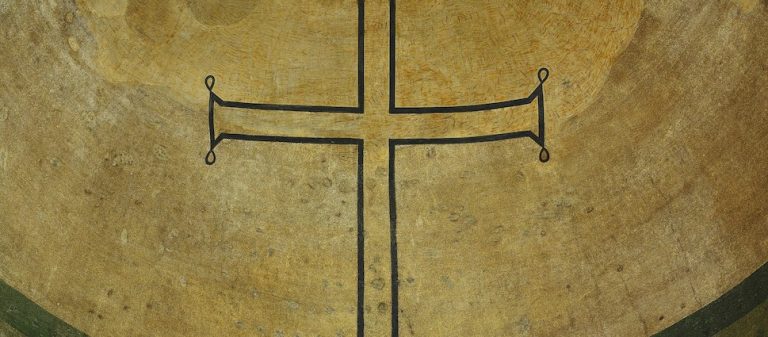
William Ames and Puritan Theologizing
In my last post, we considered the question, “What is Puritan Theology?” We answered this question with a contextual approach to Puritanism, historically and theologically, and ended with some discussion on the experiential theology of the Puritans. We especially considered the approach of William Ames (1576-1633) who called theology “the doctrine of living unto God.”
In this post I want to elaborate upon this definition and discuss how Ames, as one so influential to later Puritan theology, saw a “distribution” or division of this life in terms of its respective acts or operations. In other words, I want to talk about Puritan theologizing— how they proposed “doing” theology.
It will help to talk a little more about his claim, “Theology is the doctrine of living to God” (Theologia est doctrina deo vivendi), which concerns a life “according to the will of God, to the glory of God, God inwardly working.” In this way, living to God, for Ames, occurs as “Christ lives in me.” His thinking here connects with and goes beyond his mentor William Perkins (1558-1602) and Petrus Ramus (1515-1572), the French logician before him, in terms of what they both taught concerning living well and what Perkins described as living blessedly (to God). Thus, theology is the “good life whereby we live to God.”
As Jan van Vliet observes in The Rise of Reformed System: The Intellectual Heritage of William Ames (Paternoster, 2013), Ames also went beyond Perkins, and Beza and Calvin before him, in his heightened emphasis on the will in the Christian life. For Ames, as he argues in The Marrow, the will acts as the “prime and proper subject” of theology but never separate from the intellect and not without the impetus of divine grace. He appeals to Proverbs 4:23, which sees action of life arising from the heart, which necessarily involves the exercise of the will.
In this way, as God graciously acts upon us, we “do” theology by responding to him as “a spiritual act of the whole man, whereby” we are “carried on to enjoy God.” Ames not surprisingly calls theology “practical, and not a speculative discipline.” He no doubt here manifests the impact of Ramist (from Ramus) philosophy, which he learned from Perkins at Cambridge, which rejected the Aristotelian tendency to divorce thought and life. For Ames, orthodoxy (correct doctrine) was necessarily and intimately connected to orthopraxy (correct living).
Ames, this time manifesting the impact of Ramist method in terms of dividing subject matter (dichotomously again and again and again . . .) for reasoning well (too rigidly?), mentions two parts of theology, “faith and observance.” He refers to these two as acts or operations of divinity or theology, with faith first in the order of nature over obedience, “for there can be no vital actions brought forth, unless a principle of life be first begotten within.”
Ames defines faith as “a resting of the heart on God; as on the author of life and eternal salvation: that is to say, that by him we may be freed from all evil, and obtain all good.” Later, he speaks of faith as belief in God, which means “to cleave to God, to lean on God, to rest in God as in our all-sufficient life and salvation.” He later calls faith “the first act of life, whereby we live to God, in Christ” and that such consists “in union with God.”
Also, it may raise eyebrows that he did not speak of faith as resting on or being united to Christ (as does the Westminster Confession some twenty years later). He provides clarity later by calling Christ “the mediate” object of Faith” and God the “highest.” This in no way detracts from the deity of Christ or justification by faith in him, which he treats at length later. He concerned to show that we truly “believe in God through Christ” and “live to God by Christ.” This idea of living to God by Christ gives us a preview of the later thought of Dutch theologian, Petrus van Mastricht (1630-1706), who was influenced by Ames.
With connections to Calvin (through Perkins), Ames sees the role of the understanding of and assent to the “Divine testimony” of Scripture in faith. Yet faith is not one part this and one part that. So, in a sense, you cannot have true understanding of and assent to Scripture without faith. With faith concerned with life unto God, mere “assent given to the truth” remains insufficient. Likewise, Ames disagrees with the “Papists” that “general assent” be equated with faith. The testimony of God “cannot be received without a pious affection of the will towards God.”
In summary, Puritan theologizing represents a response to God’s gracious operation on us. The will as the subject of faith rests upon the object of faith, God in Christ. Faith as union to God operates as the first act of living to God by Christ. In such theologizing, mental contemplation can never be separated from spiritual observance. One of the passages to which Ames appeals in considering faith and observance as the two necessary operations of theology will serve as a fitting conclusion for us. It remains likewise, a necessary pursuit: “Hold fast the form of sound words, which thou hast heard of me, in faith and love which is in Christ Jesus” (2 Tim. 1:13).
Meet the Puritans is a conversation of the Alliance of Confessing Evangelicals. It is supported only by its readers and gracious Christians like you. Please prayerfully consider supporting us.
For previous posts in this series, see:
























